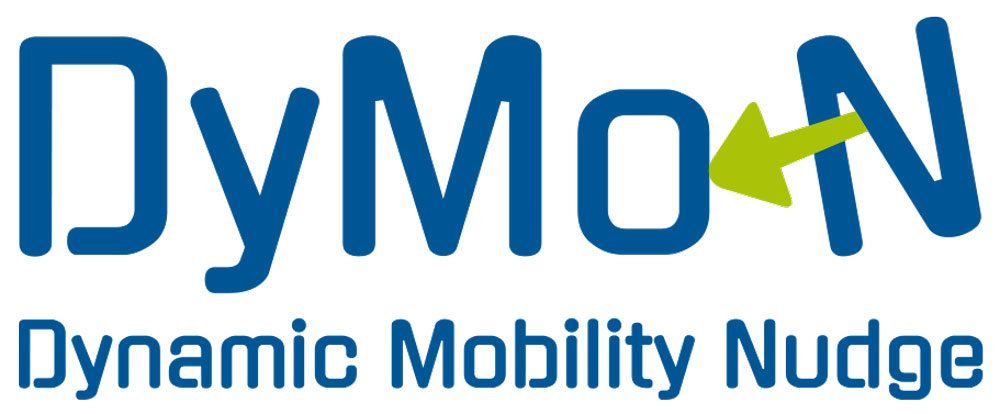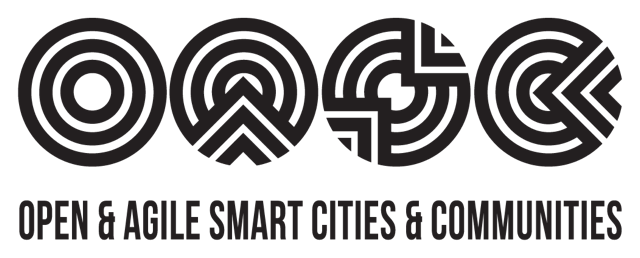European cities are undergoing complex journeys towards more sustainable mobility systems, driven by social, environmental, and political factors. Since 2021, six European project partners have set the common goal of advancing research, supporting cities and their sustainable mobility goals. The transnational project, Dynamic Mobility Nudge (DyMoN), aims at gaining a better understanding about digital, data-based nudging and its role in supporting the shift to sustainable mobility behaviour.
 A year into the project, DyMoN has co-created valuable knowledge on the role of nudging and data for sustainable mobility, consultingcitizens, mobility managers, urban planners and city representatives. Several international think tanks, interviews and workshops informed that while digital nudges could have a positive response, they raise concerns about data storage among citizens. More so, cities are in different phases of integrating nudging techniques in their urban mobility strategies; challenges being associated with limited awareness of the concept and its use and varying resources for adoption by different municipalities.
A year into the project, DyMoN has co-created valuable knowledge on the role of nudging and data for sustainable mobility, consultingcitizens, mobility managers, urban planners and city representatives. Several international think tanks, interviews and workshops informed that while digital nudges could have a positive response, they raise concerns about data storage among citizens. More so, cities are in different phases of integrating nudging techniques in their urban mobility strategies; challenges being associated with limited awareness of the concept and its use and varying resources for adoption by different municipalities.
Within DyMoN, the concept of nudging for sustainable mobility has been investigated from a theoretical viewpoint first, in order to design the most effective methods for changing behaviour. Over the past year, the project has gained insights into the role of situation-aware nudges and spatio-temporal data, which has resulted in a data assessment matrix that describes necessary, suitable datasets for creating digital, data-based nudging. In addition, DyMoN has adopted the needs of city representatives and developed a concept dashboard, which aims at helping cities gain a better visual understanding of sustainable mobility and of nudges and their connection to the local mobility context. The project has also tested models for simulations on the effects of nudging to help cities integrate the nudging framework into their mobility planning.
Connecting existing research with user needs and publicly available data, the next two years of the project will have DyMoN develop an innovative digital nudging framework. Based on a nudging repository (a set of digital nudging methods), a data hub for connecting data sources and nudges and a handbook for city representatives, the DyMoN framework will be tested in Austria and Sweden. The project will conclude by making a contribution to the emerging field of digital nudging for sustainable mobility, providing cities with recommendations and innovative tools to design mode effective mobility interventions.
 DyMoN is a three year transnational project under JPI Urban Europe programme (ERA-NET Co-fund Urban Accessibility and Connectivity), funded by the Federal Ministry for Climate Action, Environment, Energy, Mobility, Innovation, and Technology (BMK) and the Austrian Research Promotion Agency (FFG) (Austria), the Federal Ministry of Education and Research (Germany), and Energimyndigheten (Sweden). The project is led by Salzburg Research (AT), partners are University of Salzburg (Department of Geoinformatics) (AT), the Department of Civil and Industrial Engineering from Uppsala University (SE), Sustainability InnoCenter (SE), Ecollective (SE), and Trafficon GmbH (DE). OASC is an associate partner in this project and interacts with city representatives on shifting mobility behaviour in their city.
DyMoN is a three year transnational project under JPI Urban Europe programme (ERA-NET Co-fund Urban Accessibility and Connectivity), funded by the Federal Ministry for Climate Action, Environment, Energy, Mobility, Innovation, and Technology (BMK) and the Austrian Research Promotion Agency (FFG) (Austria), the Federal Ministry of Education and Research (Germany), and Energimyndigheten (Sweden). The project is led by Salzburg Research (AT), partners are University of Salzburg (Department of Geoinformatics) (AT), the Department of Civil and Industrial Engineering from Uppsala University (SE), Sustainability InnoCenter (SE), Ecollective (SE), and Trafficon GmbH (DE). OASC is an associate partner in this project and interacts with city representatives on shifting mobility behaviour in their city.

